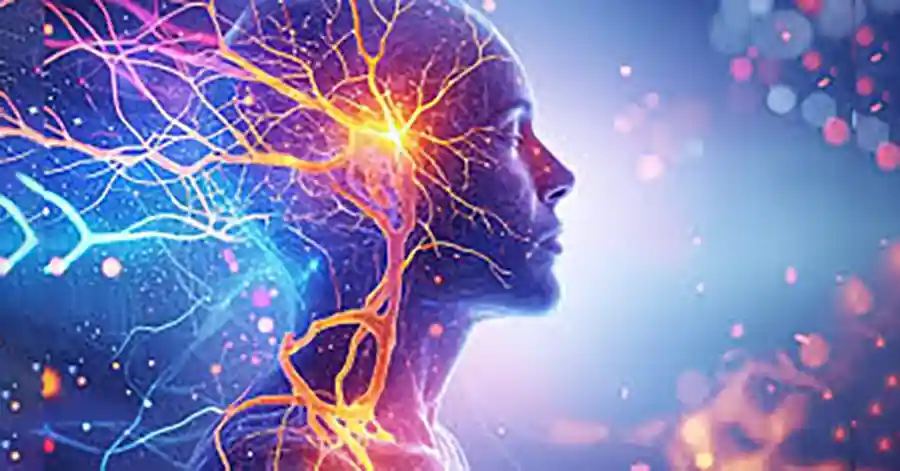Hormones and mental health are intrinsically connected in ways scientists are only beginning to fully understand. These powerful chemical messengers don’t just regulate physical functions—they profoundly influence your mood, emotions, and overall mental wellbeing in surprising and sometimes dramatic ways.
While we like to believe our feelings are entirely under our control, research reveals that hormone imbalances can trigger depression, anxiety, mood swings, and other mental health challenges. Understanding this connection opens doors to revolutionary new treatments that could transform mental healthcare.
What Are Hormones and How Do They Control Your Body?
Understanding Chemical Messengers
Hormones are specialized chemical messengers produced by glands, organs, and tissues throughout your body. Scientists have identified over 50 different hormones in the human body, each serving critical functions.
Key hormone functions include:
- Growth and development regulation
- Sexual function and reproduction
- Sleep-wake cycle management
- Metabolism and energy balance
- Mood and mental health regulation
These molecules travel through your bloodstream, binding to specific receptors like a biological “handshake” that triggers specific bodily responses. For instance, insulin signals cells to absorb glucose, while other hormones directly influence brain chemistry and emotional states.
How Hormones Affect Mental Health and Mood
The Brain-Hormone Connection
According to Professor Nafissa Ismail from the University of Ottawa, “Hormones really impact our mood and our emotions” by interacting with neurotransmitters in specific brain regions and influencing critical processes like neurogenesis—the creation of new brain neurons.
Hormones influence mental health through:
- Neurotransmitter interaction with serotonin and dopamine
- Neurogenesis in memory and emotion centers
- Neuronal protection from damage and death
- Stress response regulation via cortisol pathways
- Brain inflammation control
Research from mental health experts at Singha Darbar emphasizes that understanding these mechanisms is crucial for developing effective treatments for mood disorders.
Why Women Experience Higher Rates of Mental Health Disorders
The Gender Gap in Depression and Anxiety
Statistics reveal a striking pattern: while depression rates are equal between boys and girls during childhood, by adolescence, girls become twice as likely to experience depression—a gap that persists throughout life.
Hormonal transitions linked to mental health challenges:
- Menstruation cycle – Premenstrual mood changes
- Pregnancy – Hormonal fluctuations affecting wellbeing
- Postpartum period – Up to 13% experience depression
- Perimenopause – Dramatic hormone shifts
- Menopause – Decreased oestrogen affecting brain function
Sex Hormones and Mood Regulation
Oestrogen and progesterone significantly influence women’s mental health throughout their reproductive years. In the days before menstruation, falling hormone levels coincide with irritability, fatigue, sadness, and anxiety for many women.
Some women experience Premenstrual Dysphoric Disorder (PMDD)—a severe hormone-related mood disorder characterized by extreme mood swings, anxiety, depression, and even suicidal thoughts during the two weeks before menstruation.
Dr. Liisa Hantsoo from Johns Hopkins University notes, “For many women with PMDD, it’s a chronic issue they deal with every month, having a profound effect on their lives.”
The Postpartum Depression Crisis
Hormonal Changes After Childbirth
Immediately after giving birth, women experience a precipitous drop in progesterone and oestrogen levels, contributing to postpartum depression affecting up to 13% of new mothers.
Allopregnanolone, a breakdown product of progesterone known for its calming effects, also decreases dramatically. When injected medically, this hormone produces immediate relaxation, highlighting its powerful mood-regulating properties.
The dramatic hormonal transitions—not just absolute hormone levels—appear most problematic. Professor Liisa Galea from the University of Toronto explains, “It’s probably not about the exact level of hormones somebody has, but likely these transitions where a person is going from low to high levels, or high to low levels.”
Men and Hormones: The Overlooked Connection
Testosterone’s Role in Male Mental Health
While less dramatic than women’s hormonal changes, men experience gradual testosterone decline with age that can trigger mood changes in some individuals.
“We do see changes in the mood of some men as testosterone levels change throughout the lifespan, and that is definitely a topic that does not receive enough attention,” emphasizes Professor Ismail.
Research suggests testosterone supplements combined with certain antidepressants may enhance treatment effectiveness for men with lower testosterone levels and depression.
Stress Hormones and Mental Health Breakdown
The HPA Axis and Cortisol Connection
The hypothalamus-pituitary-adrenal (HPA) axis regulates your body’s stress response through cortisol release. When functioning properly, this system helps you handle short-term stress effectively.
Chronic stress triggers destructive patterns:
- Continuous cortisol flooding
- Hippocampus neuron death
- Broken negative feedback loops
- Brain inflammation increase
- Memory and concentration impairment
Dr. Hantsoo warns, “In the short term, the HPA axis activation is adaptive because it helps your body deal with stress. But in the long term, it can be detrimental.”
Cortisol destroys neurons in critical brain regions including the amygdala (emotion control) and prefrontal cortex (decision-making), leading to increased irritability, difficulty concentrating, and poor emotional regulation.
The Love Hormone: Oxytocin’s Mental Health Benefits
Natural Stress Relief Through Bonding
Oxytocin, often called the “love hormone,” counteracts stress effects by promoting secure attachment and reducing cortisol levels. Released during childbirth, breastfeeding, and orgasm, it also facilitates bonding between humans and animals.
Studies show oxytocin nasal spray increases:
- Generosity and cooperation
- Empathy towards others
- Trust in strangers
- Feelings of security
However, researchers debate whether oxytocin effectively crosses the blood-brain barrier, making its therapeutic potential still uncertain.
Thyroid Hormones and Mood Disorders
T3 and T4’s Critical Mental Health Role
The thyroid gland produces triiodothyronine (T3) and thyroxine (T4)—hormones that regulate heart rate, temperature, and critically, mental health.
Thyroid imbalances cause:
- Overactive thyroid (high hormone levels) → Anxiety
- Underactive thyroid (low hormone levels) → Depression
Fortunately, correcting thyroid hormone levels usually resolves these mental health symptoms. Physicians routinely check hormonal profiles when patients report mood changes, as hormone correction often adjusts mood naturally.
T3 may increase serotonin and dopamine brain levels or enhance receptor sensitivity, explaining its profound mood impact.
Revolutionary Hormone-Based Mental Health Treatments
New Hope for Depression and Anxiety
Understanding hormones and mental health connections is revolutionizing treatment approaches. Several breakthrough therapies show remarkable promise:
Brexanolone – Mimics allopregnanolone, proving highly effective for postpartum depression treatment
Hormone Replacement Therapy (HRT) – Helps improve mood in some perimenopausal and menopausal women
Testosterone supplements – Enhance antidepressant effectiveness in men with low testosterone
Hormonal birth control – Benefits some PMDD sufferers, though effects vary individually
The Challenge of Individual Variation
Treatment complexity arises because individual hormone sensitivity varies dramatically. Some people sail through major hormonal transitions symptom-free, while others experience severe mental health challenges.
Professor Ismail emphasizes, “We know that hormones impact mood and mental health, but we need to figure out how they do so before we can come up with the proper treatments.”
Why Current Antidepressants Don’t Work for Everyone
The Serotonin Theory Limitations
Most modern antidepressants boost serotonin levels, based on the theory that low serotonin causes depression. However, these medications prove ineffective for many patients, particularly adolescents.
Understanding hormonal influences on mood could explain why:
- Adolescent brains respond differently to treatment
- Some populations show treatment resistance
- Hormonal fluctuations override medication effects
- Individual hormone sensitivity varies
Future treatments may combine hormone regulation with neurotransmitter therapy for more comprehensive mental health management.
Recognizing Hormone Imbalance Symptoms
When to Seek Medical Evaluation
Mental health symptoms potentially linked to hormones:
✓ Persistent sadness or depression ✓ Unexplained anxiety or panic attacks ✓ Severe premenstrual mood changes ✓ Postpartum depression or anxiety ✓ Brain fog and memory problems ✓ Extreme irritability or mood swings ✓ Difficulty concentrating ✓ Sleep disturbances ✓ Loss of interest in previously enjoyed activities
Consult healthcare providers about hormone testing if experiencing these symptoms, especially during major life transitions like adolescence, pregnancy, or menopause.
The Future of Hormone-Based Mental Healthcare
Personalized Treatment Approaches
As researchers uncover more about hormones and mental health connections, treatment will become increasingly personalized. Future approaches may include:
- Genetic testing for hormone sensitivity
- Customized hormone therapy protocols
- Combined hormone-neurotransmitter treatments
- Age-specific intervention strategies
- Gender-specific mental health approaches
The goal is understanding why some individuals remain resilient during hormonal transitions while others become vulnerable to mental health challenges.
Conclusion: Taking Control of Your Hormonal Mental Health
The intricate relationship between hormones and mental health represents both challenge and opportunity. While hormonal fluctuations can trigger devastating mental health symptoms, this knowledge empowers better diagnosis and innovative treatments.
Whether you’re experiencing premenstrual mood changes, postpartum depression, menopausal symptoms, or unexplained anxiety, understanding your hormonal profile could unlock effective treatment strategies. Don’t dismiss mood changes as purely psychological—they may have biological roots in hormone imbalances requiring medical attention.
As research advances, hormone-based therapies promise more effective, personalized mental healthcare that addresses root causes rather than just symptoms. The future of mental health treatment lies in understanding these powerful chemical messengers and harnessing their influence for healing.




















Comments